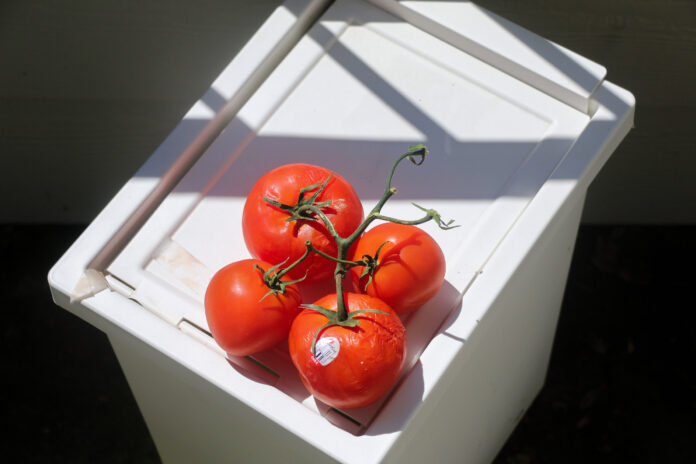Research before you eat
Y’all are a bunch of bullies. For one thing, you gang up on gluten, which is great for the rather numerous people with celiac disease because those who suffer from the autoimmune disorder now have actual options when it comes to the food they dine on compared to, say, a decade ago. As a vegetarian with many dietary restrictions, I do not begrudge anyone facing food limitations for the luxury of some additional choices.
On principle, however, for all of you going out to dinner wringing your hands and worriedly asking your waiters and waitresses if your lettuce is gluten-free out of layered ignorance, I get frustrated. You are falling prey to a pointless, alarmist fad. There is nothing inherently wrong with gluten, unless your doctor tells you that you’re allergic to gluten after testing you for celiac disease. I get frustrated because people are profiting off of you and you’re erroneously believing that gluten is bad for you (and apparently, gluten-free foods may be even less healthy than foods prepared in normal, gluten-inclusive fashions).
But where you get really mean and bully-like is when it comes to my friends GMOs. GMO stands for “genetically modified organism,” and they “are created in labs by extracting genes from one species’ DNA and inserting them into another plant or animal that doesn’t naturally possess that genetic material.”
Sure, science is scary. We’ve established that. The mad scientist. Frankenstein. Dr. Jekyll and Mr. Hyde. Jurassic Park — and Killer Tomatoes! I would argue that the 1978 film Attack of the Killer Tomatoes is remarkably, sadly, hilariously, prescient of our present day popular attitude toward GMOs. The thing is GMOs, just like gluten, are not inherently evil. As the world’s second best agricultural school, UC Davis is uniquely situated to spearhead this truth.
Davis, for example, has been feeding livestock genetically modified feed for 30 years and nary a bent feather or misshapen hoof has resulted. Scientifically speaking, no meat unfit or dangerous for human consumption has resulted. In 30 years. But why hede the science of our very own world-renowned academic research institution? After all as students we only back up its credibility and expertise with thousands of dollars of our own debt (don’t want to feed our pooches Non-GMO Project uncertified dog food lest they grow a third ear because a cabal of “expert” bloggers said so).
Poor, misunderstood GMOs. I first encountered a convincing don’t-hate-GMO argument in a Slate article in 2015. This anti-GMO scare (I would say “witch hunt” but that term has been ruined) has been going on for a long time. Slate said, “The World Health Organization, the American Medical Association, the National Academy of Sciences, and the American Association for the Advancement of Science have all declared that there’s no good evidence GMOs are unsafe [for humans to eat].” There are additional arguments against GMOs as they pertain to ecology and the farmers who use the seeds and livestock, but for the purview of this piece I’m going to stick to human health. There is also this article: “With 2,000+ global studies affirming safety, GM foods among most analyzed subjects in science.” It’s important to note that these studies are both independent and peer-reviewed, which means they are not ostensibly funded by parties with biased interests in manufacturing certain results, and the methods of the studies are vouched for by other scientists who are experts in the field. Detractors of GMOs cannot attest the same level of scientific support for their claims that GMOs are bad for our health.
There are horrific concerns that evil scientists are going to splice peanuts into broccoli and, unawares, everyone with a peanut allergy is going to sit down to eat some delicious broccoli and DIE. Well, for starters, we already label products packaged in factories used to process nuts to avoid killing people, so… maybe we are just afraid of our own perceived power to manipulate life. It’s like a Biblical nervousness. I’m pretty sure someone said we’re not supposed to be able to do this and we are waiting for some kind of cosmic genetic colossal slap on the wrist. Or it’s like gossip or a horror movie. We like to be scandalized and get all titillated and afraid on both a macro and micro, global and bio scale. We can all pretend to know something about it and not have to actually know anything about it — because science and fact and truth have long gone out the window — to get in on the juicy, water-cooler conversation.
The bottom line is that the Non-GMO Project is making money off of you. There are $26 billion in annual sales to products that wish to boast its seal, and that cost gets passed on to the consumer in the form of a 10 to 62% price increase. What are you paying for? Fear-mongering.
If you want to be hyper-concerned about what you’re putting into your body, consult a dietician or get a basic blood panel run through your primary care physician if you’re lucky enough to have health insurance and low copays. You might find that you are low on iron and should eat more spinach. If you are affiliated with this school, you have access to millions of peer-reviewed scientific journals. Satisfy yourself and see what the latest research has to say about the food you put in your body. Dig a little deeper on your own before you decide to increase your student debt on unnecessary food costs.
Written by: Lauren Frausto — lrfrausto@ucdavis.edu
Disclaimer: The views and opinions expressed by individual columnists belong to the columnists alone and do not necessarily indicate the views and opinions held by The California Aggie.




